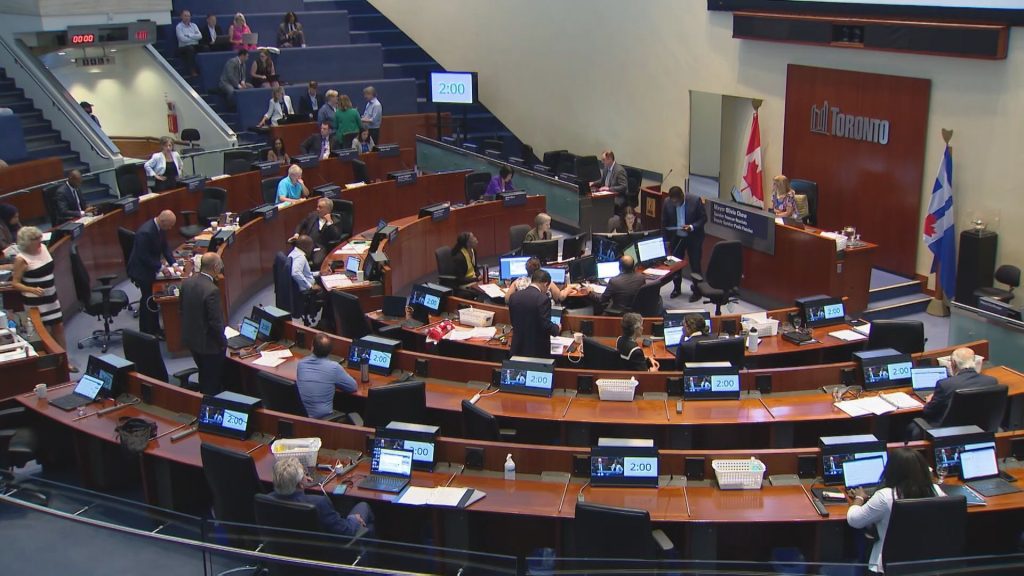On Thursday, several First Nations traveled from the far reaches of northern Ontario to Queen's Park in Toronto in a bid to voice their concerns regarding Bill 5, an omnibus bill proposed by Premier Doug Ford's government that aims to expedite mining approvals in traditional lands. The gathering of leaders and supporters was marked by traditional singing and the beating of a large drum before they entered a committee hearing to express their opposition to the bill.
Frustrations were evident, as Grand Chief Alvin Fiddler of the Nishnawbe Aski Nation warned that if the government persists with the bill, there will be “confrontation on the ground.” Fiddler noted that he had personally invited Premier Ford to meet with the leadership of the 49 First Nations represented by his organization, but did not receive a response.
Bill 5, known as the Protect Ontario by Unleashing our Economy Act, would grant the province the authority to suspend certain provincial and municipal laws in areas designated as special economic zones. The Ring of Fire, a region in northern Ontario rich in critical minerals, has been cited as the first proposed special economic zone; however, specifics about its implementation remain unclear.
The introduction of Bill 5 has incited anger and criticism from various factions, including First Nations, environmental groups, and civil liberty organizations, while receiving backing from the mining industry. Residents from the Ring of Fire expressed that the bill threatens their treaty rights and way of life. Chris Moonias, the former chief of Neskantaga First Nation, highlighted the community's ongoing struggles, such as living under a boil-water advisory for over 30 years, and declared a commitment to oppose the bill through all available means, including media, legal action, and direct action on the land.
Indigenous nations formalized their rights through Treaty No. 9 over a century ago, establishing a nation-to-nation relationship between First Nations and the Crown. Chief Archie Wabasse of Wunnumin Lake First Nation emphasized that the province could avoid confrontations by engaging directly with First Nations communities. Wabasse urged the government to meet with Indigenous people to discuss the bill, appealing to their sacred and natural laws that have been adhered to for generations.
Two government ministers sought to reassure attendees that the province intends to fulfill its constitutional duty to consult with First Nations. Energy and Mining Minister Stephen Lecce stated that the government is amending the law's preamble to better reflect its commitment to consultation with Indigenous peoples. He asserted that the province is dedicated to advancing economic reconciliation and has engaged with Ontario Regional Chief Abram Benedict for input on these changes.
New Democrat MLA Sol Mamakwa criticized the government, claiming they are not only failing to honor the treaties with First Nations but are actively violating them. In response, Minister of Indigenous Affairs Greg Rickford disagreed, underscoring that the bill actually enhances the government's obligation to consult, and expressing a desire to collaborate with First Nations communities on the development of the Ring of Fire.
Rickford shared his personal connection to the region, having lived in nearby communities for nearly a decade, and noted the significant infrastructure deficits faced by those communities. He expressed a commitment to improving access to services such as healthcare and social support, particularly in remote areas that rely on diesel for energy.
Mamakwa proposed a motion to add an additional day of committee hearings in Thunder Bay to allow northern Ontario residents to share their perspectives on the bill, but this motion was rejected by the Progressive Conservatives. Support for the bill was voiced by various mining organizations, who are in favor of measures designed to minimize government red tape and streamline the permitting process for mining operations. The final day of committee hearings is scheduled for Monday, leaving room for further discussion on the contentious legislation.












